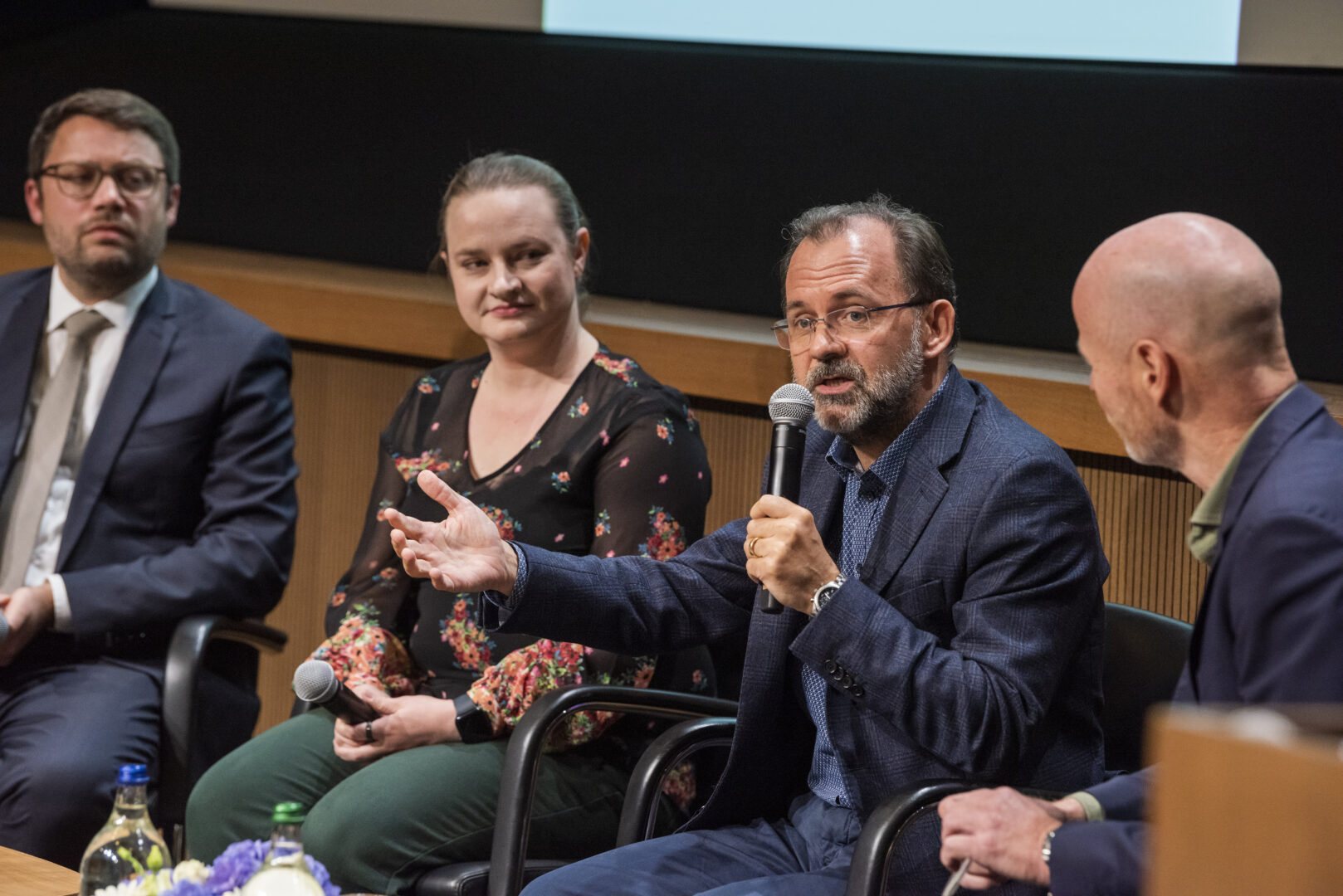IMD has celebrated the release of its 2022 World Digital Competitiveness Ranking by hosting the 2022 Digital Competitiveness Summit, co-organized by digitalswitzerland and the École polytechnique fédérale de Lausanne (EPFL).
Professor Arturo Bris, Director of the IMD World Competitiveness Center which produces the ranking, focused on lessons that Switzerland, 5th in the ranking, could learn from those economies that were ranked higher.
“What Switzerland can learn from Israel, Singapore, Denmark and Estonia is that the foundations for digital transformation are: a digital identity program, and data security which involves data governance. We also need digital infrastructure and digital culture, or attitude. The problem is knowing where to start.”
He delved into the topics of whether a digital identity should be mandatory or not, and the reasons for “fungible” and “non-fungible” identity systems in different countries the world over.
The event, which takes place yearly and is the fruit of a strong collaboration between the three co-organizers, was opened by David Bach, Dean of Innovation and Programs and Professor of Strategy and Political Economy at IMD.
As the evening unfolded, Marc Walder, Founder of digitalswitzerland and CEO of Ringier, hosted a panel discussion with local experts about the trials and tribulations behind regulating the digital world.
Helpful, health-promoting uses of data impeded by fear
Melissa Finocchio, Chief Regulatory Officer at SOPHiA GENETICS, put forward the point of view of regulators in the healthcare world, grappling with the challenges of connecting doctors with various types of patient information available, in order to enable them to make better diagnoses.
“From an ethical point of view, the goal of sharing information, data and insights can be very valid but all too often, regulation meant to protect patients blocks us from doing something good, for instance in healthcare. This is because people don’t foresee exceptions, and regulation has been built around fear: ‘we must protect our data’.”
“Our platform only works if people let us share the information we learn from their data and we have to convince patients and doctors that we are trustworthy. To the extent that we have GDPR showing we are certified and are doing the right thing, it helps build trust. If we have laws that build help to confidence, we can break down fear. But that also only comes if we have the funding to do it,” she said.
‘We need 21st-century answers in Switzerland’
Describing a prevalence of “20th-century answers to 21st-century problems” in digitally related affairs in Switzerland, Edouard Bugnion, Vice-President of EPFL, said the country needed an answer that was compatible with its federal nature but with 21st-century infrastructure.
“We need a backbone and a way to operationally delegate what needs to be done,” he said.
Keynote speaker and panellist Johannes Rühl, Lead Negotiator for Digital Trade (WTO), the State Secretariat for Economic Affairs SECO, explained the Swiss Federal Council’s motivation to include digital trade policy in its foreign economic policy strategy.
“Switzerland is a highly globalized economy and not part of any of the major rule making jurisdictions. Given our small home market, international fragmentation and discrimination are particularly harmful to us. In order to maintain an innovation friendly regulatory framework Swiss consumers and companies need to be able to import and export data as freely as possible,” he said.


